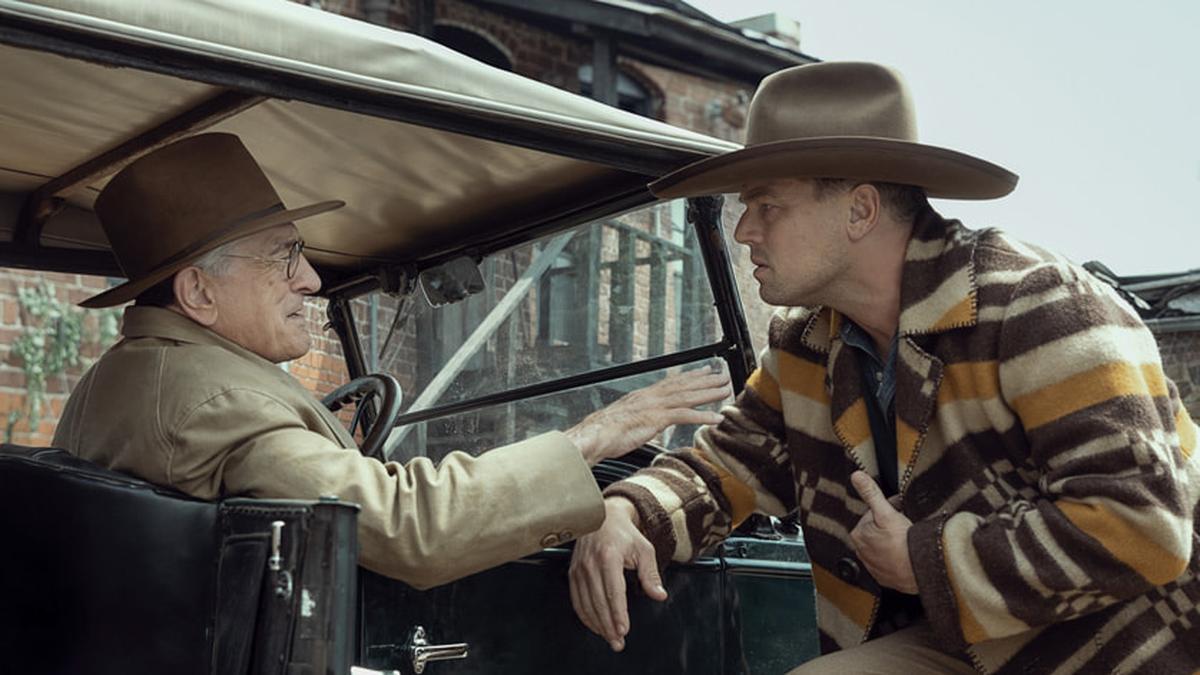
Apple Studios is facing a significant legal challenge as Kristi Marie Hoffman, a Native American costume designer who worked on the critically acclaimed film “Killers of the Flower Moon,” has filed a lawsuit against the company. Hoffman claims that she was unfairly excluded from awards consideration as an act of retaliation after she raised complaints about discrimination within the project.
The lawsuit, filed on Wednesday in Los Angeles Superior Court, alleges that Hoffman’s substantial contributions to the film’s costume design were deliberately overlooked. Despite the numerous accolades the film has garnered, including an impressive 10 Oscar nominations, seven Golden Globe nominations, and three SAG nominations, Hoffman asserts that her work has not received any recognition.
Hoffman’s complaint details how she was initially listed as the first assistant costume designer by the Costume Designers Guild. However, this listing was subsequently removed, allegedly at the behest of lead costume designer Jacqueline West. The removal was not limited to Hoffman alone but extended to all assistant designers involved in the project. Hoffman challenged this action, and the guild later acknowledged that the removal was improper. Despite this acknowledgment, Hoffman contends that her contributions continued to be ignored.
A significant highlight of Hoffman’s work includes the design of a jacket worn by Leonardo DiCaprio in the film. The jacket received widespread praise for its authenticity and attention to detail. Nevertheless, Hoffman claims that only West and consultant Julie O’Keefe were credited for the design.
Hoffman’s lawsuit lists multiple claims against Apple Studios, including breach of contract, false advertising, retaliation, and both intentional and negligent infliction of emotional distress. She is seeking damages and an injunction to prevent further misrepresentation of her contributions to the film.
.
Hoffman’s allegations are particularly poignant given the film’s subject matter, which revolves around the Osage Nation murders in the 1920s and highlights themes of exploitation and injustice against Native Americans. Hoffman has emphasized that her motivation for working on the film was deeply rooted in her heritage and a desire to ensure authentic representation.
The lawsuit sheds light on the often-unseen challenges that industry professionals, particularly those from marginalized communities, face in Hollywood. Hoffman’s case points to broader systemic issues within the industry, where recognition and credit can sometimes be disproportionately awarded to more prominent figures, overshadowing the contributions of equally deserving but lesser-known creatives.
Apple Studios has not yet released an official statement regarding the lawsuit. However, industry insiders suggest that this legal battle could have wider implications for how contributions are credited in Hollywood, especially in collaborative environments where multiple designers and artists work together on a single project.
The Costume Designers Guild’s involvement and subsequent acknowledgment of the improper removal of Hoffman’s listing could bolster her case. It also raises questions about the accountability mechanisms within industry guilds and their role in protecting the rights of their members.
As the lawsuit progresses, Hoffman’s courage in challenging these alleged injustices will likely inspire other industry professionals who feel their work has been similarly overlooked or misrepresented. Her case may become a touchstone for future discussions about equity and recognition in Hollywood.
In addition to the legal ramifications, Hoffman’s lawsuit is also likely to spark conversations about the importance of diversity and representation, not just on screen but within the ranks of those who craft the visual storytelling elements that bring films to life. The outcome of this case could potentially influence how studios and production companies approach crediting and awarding their creative teams in the future.
For now, the industry watches closely as this high-profile lawsuit unfolds, with many hoping it will lead to more equitable practices and greater recognition for all professionals, regardless of their status or background.












